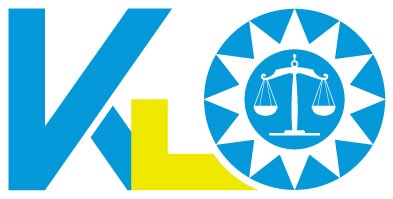Best Mortgage Lawyers in Japan
Share your needs with us, get contacted by law firms.
Free. Takes 2 min.
Free Guide to Hiring a Real Estate Lawyer
Or refine your search by selecting a city:
List of the best lawyers in Japan
About Mortgage Law in Japan
Mortgage law in Japan is governed by a mix of statutory laws and customary practices, which regulate how property can be used as collateral for a loan. Mortgages in Japan are a crucial instrument in real estate financing, providing lenders with security interests in property. A mortgage in Japan can be used to secure any kind of debt, not just loans specifically taken out to purchase property. The process involves registration at the Legal Affairs Bureau and compliance with relevant regulations, including the Civil Code and the Act on Special Measures Concerning Real Property. Japan's legal framework ensures that the rights of both borrowers and lenders are protected, making it imperative to understand the intricacies of these laws when entering into mortgage agreements.
Why You May Need a Lawyer
There are several situations where legal assistance might be necessary:
- Complex Contracts: Mortgage contracts can be complex, with numerous clauses and legal jargon. A lawyer can help interpret these terms to ensure you fully understand your obligations and rights.
- Disputes: If you encounter a dispute with a lender or another party regarding the terms of your mortgage, a qualified legal professional can help mediate and resolve the issue.
- Foreclosure: If you face foreclosure, a lawyer can help protect your rights and explore possible options to prevent loss of your property.
- Refinancing: When considering refinancing an existing mortgage, legal advice can ensure the new terms are favorable and legally sound.
- Inheritance Issues: If you inherit mortgaged property, understanding the legal implications and options available is crucial, requiring professional legal guidance.
Local Laws Overview
Several key aspects of Japanese mortgage law are important for borrowers and lenders to understand:
- Registration: The establishment of a mortgage requires registration at the Legal Affairs Bureau to be valid against third parties.
- Priority. Mortgages have priority over unsecured debts, but understanding priority between multiple mortgages is vital.
- Redemption: The borrower has the right to redeem the mortgage by paying off the loan, effectively releasing the security on the property.
- Foreclosure Process: In the event of default, lenders can initiate a foreclosure process through the court to sell the mortgaged property and recover owed amounts.
- Legal Limits on Interest Rates: There are statutory limits to interest rates that can be charged on loans secured by a mortgage.
- Consumer Protection Laws: These laws protect borrowers from unfair practices and provide mechanisms for dispute resolution.
Frequently Asked Questions
What is the maximum term of a mortgage in Japan?
Typically, mortgage terms in Japan can go up to 30 to 35 years, though shorter terms are also available based on borrower preference and bank policy.
Can a foreigner obtain a mortgage in Japan?
Yes, foreigners can obtain mortgages in Japan, but terms and conditions may vary based on the individual's residency status and income stability.
What happens if I'm unable to make mortgage payments?
In the event of non-payment, lenders may initiate a process to recover the debt, which could lead to foreclosure and eventual sale of the property. It's crucial to communicate with your lender immediately if you're struggling to make payments.
Are there any tax benefits associated with mortgages in Japan?
Yes, homeowners may be eligible for mortgage tax deductions under certain conditions, such as when purchasing a home for personal use rather than for investment.
How is interest calculated in Japanese mortgages?
Interest on Japanese mortgages can be fixed, variable, or a combination of both. Understanding the implications of each type is important before agreeing to a mortgage.
What is the process for refinancing a mortgage in Japan?
Refinancing involves applying for a new mortgage to pay off the existing one, often to benefit from better interest rates or terms, and requires careful consideration of any associated costs and implications.
Do I need to pay a deposit when securing a mortgage in Japan?
Yes, most lenders require a deposit, which typically ranges from 10% to 20% of the property’s purchase price.
Can I use a mortgage to purchase property for commercial use?
Yes, mortgages can be used for both residential and commercial properties, though the terms and requirements may differ.
What fees are associated with securing a mortgage?
Common fees include appraisal fees, origination fees, and registration fees. It's important to discuss all applicable fees with your lender upfront.
How can I check if a property has existing mortgages?
You can check property records through the Legal Affairs Bureau to determine if there are any existing encumbrances or mortgages on a property.
Additional Resources
The following resources can provide further assistance:
- Legal Affairs Bureau: Responsible for the registration of property and mortgages; they can provide key information on procedures and documentation.
- Japan Housing Finance Agency: Offers loans and financing information for residential improvements and purchases.
- Consumer Affairs Agency: Provides information on consumer rights and protection related to mortgage agreements.
- Japan Federation of Bar Associations: Offers a directory of lawyers specializing in mortgage law for legal consultations and advice.
Next Steps
If you require legal assistance in mortgage matters, it's advisable to consult with a qualified lawyer specializing in Japanese mortgage law. Begin by identifying lawyers or law firms experienced in real estate and property law. Prepare any relevant documents or questions before your consultation, and ensure you understand the fee structure for legal services. Additionally, reaching out to subordinate bodies like the Legal Affairs Bureau or financial institutions can provide you with preliminary information on your situation before seeking legal counsel.
Lawzana helps you find the best lawyers and law firms in Japan through a curated and pre-screened list of qualified legal professionals. Our platform offers rankings and detailed profiles of attorneys and law firms, allowing you to compare based on practice areas, including Mortgage, experience, and client feedback.
Each profile includes a description of the firm's areas of practice, client reviews, team members and partners, year of establishment, spoken languages, office locations, contact information, social media presence, and any published articles or resources. Most firms on our platform speak English and are experienced in both local and international legal matters.
Get a quote from top-rated law firms in Japan — quickly, securely, and without unnecessary hassle.
Disclaimer:
The information provided on this page is for general informational purposes only and does not constitute legal advice. While we strive to ensure the accuracy and relevance of the content, legal information may change over time, and interpretations of the law can vary. You should always consult with a qualified legal professional for advice specific to your situation.
We disclaim all liability for actions taken or not taken based on the content of this page. If you believe any information is incorrect or outdated, please contact us, and we will review and update it where appropriate.
Browse mortgage law firms by city in Japan
Refine your search by selecting a city.















